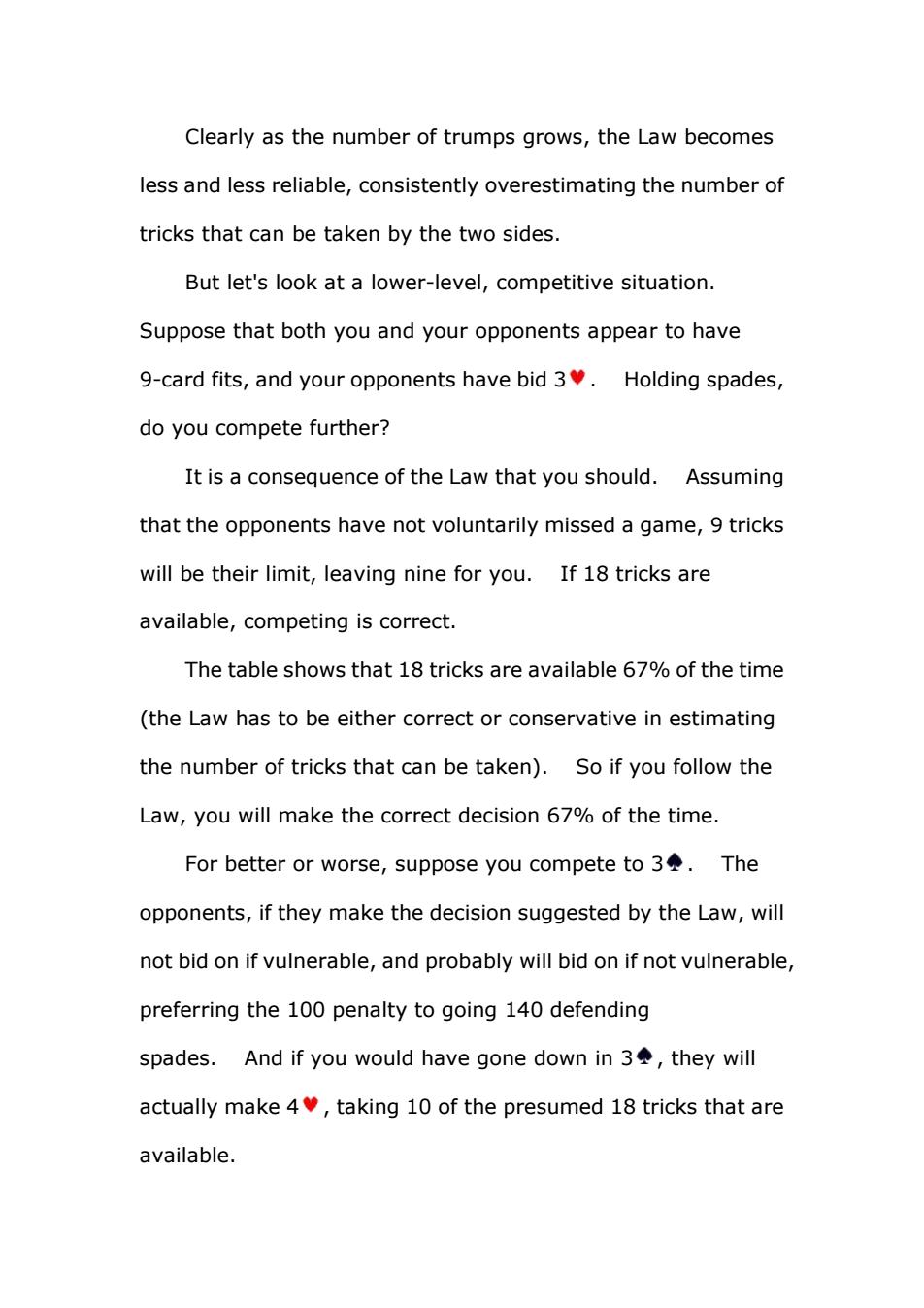正在加载图片...

Clearly as the number of trumps grows,the Law becomes less and less reliable,consistently overestimating the number of tricks that can be taken by the two sides. But let's look at a lower-level,competitive situation. Suppose that both you and your opponents appear to have 9-card fits,and your opponents have bid 3.Holding spades, do you compete further? It is a consequence of the Law that you should.Assuming that the opponents have not voluntarily missed a game,9 tricks will be their limit,leaving nine for you.If 18 tricks are available,competing is correct. The table shows that 18 tricks are available 67%of the time (the Law has to be either correct or conservative in estimating the number of tricks that can be taken).So if you follow the Law,you will make the correct decision 67%of the time. For better or worse,suppose you compete to 3.The opponents,if they make the decision suggested by the Law,will not bid on if vulnerable,and probably will bid on if not vulnerable, preferring the 100 penalty to going 140 defending spades.And if you would have gone down in 3,they will actually make 4,taking 10 of the presumed 18 tricks that are available.Clearly as the number of trumps grows, the Law becomes less and less reliable, consistently overestimating the number of tricks that can be taken by the two sides. But let's look at a lower-level, competitive situation. Suppose that both you and your opponents appear to have 9-card fits, and your opponents have bid 3 . Holding spades, do you compete further? It is a consequence of the Law that you should. Assuming that the opponents have not voluntarily missed a game, 9 tricks will be their limit, leaving nine for you. If 18 tricks are available, competing is correct. The table shows that 18 tricks are available 67% of the time (the Law has to be either correct or conservative in estimating the number of tricks that can be taken). So if you follow the Law, you will make the correct decision 67% of the time. For better or worse, suppose you compete to 3 . The opponents, if they make the decision suggested by the Law, will not bid on if vulnerable, and probably will bid on if not vulnerable, preferring the 100 penalty to going 140 defending spades. And if you would have gone down in 3 , they will actually make 4 , taking 10 of the presumed 18 tricks that are available